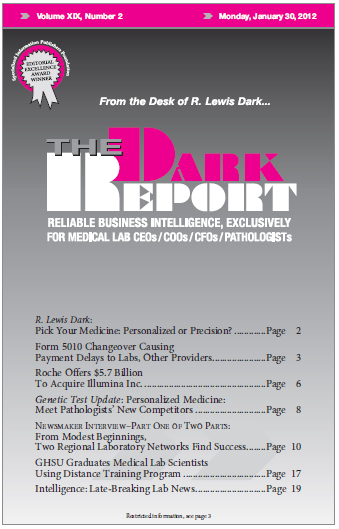CEO SUMMARY: Once again, Roche is hunting for gene sequencing and gene analysis technology that can support its goal of being a world leader in gene-based therapeutics and clinical lab testing that utilizes gene tests and molecular diagnostics. Last week, Roche launched a hostile stock tender offer for shares of Illumina, Inc., of San Diego, …
Roche Offers $5.7 Billion To Acquire Illumina Inc. Read More »
To access this post, you must purchase The Dark Report.


